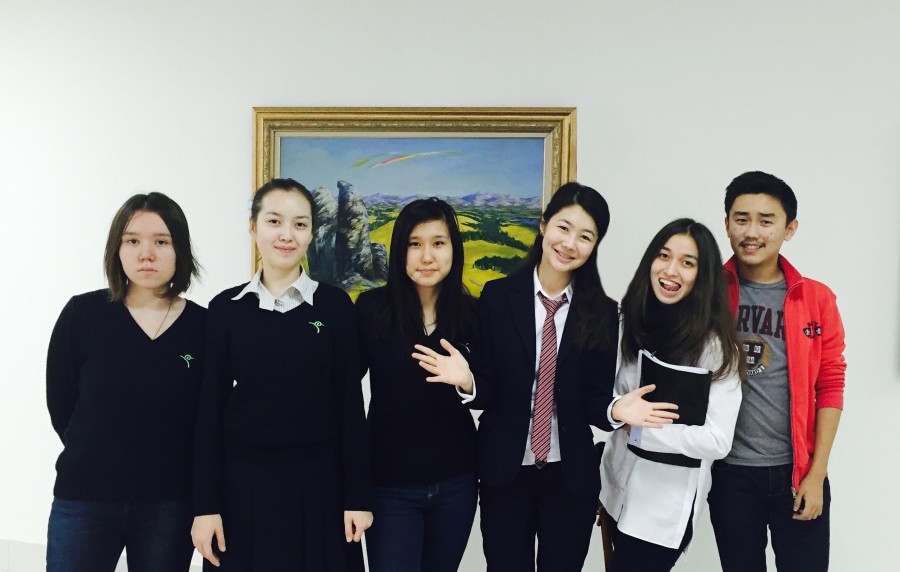Students compare free speech rights around the world
Free speech and its limits have become highly debated topics during January after two gunmen killed 11 journalists from satirical magazine Charlie Hebdo and one security guard in Paris on Jan. 7, ostensibly seeking revenge for cartoons depicting the prophet Muhammad.
Student free speech rights vary throughout the United States and the world, as do opinions on the ethics of Charlie Hebdo.
United States
According to an article from the American Civil Liberties Union’s website in 2003, students attending public schools have free speech rights, but these rights are not valid for profanity or disruptive speech.
“In general, the court defers to a very paternalistic sense of First Amendment rights for students in school,” history teacher Tim Case said. “In some ways, the First Amendment rights that students have with school are viewed in the context of a legal system that views students not as fully rational agents.”
The origins of some student free speech protections are in the 1969 Supreme Court case of Tinker v. Des Moines, which ruled that students of public schools “do not shed their constitutional rights to freedom of speech or expression at the schoolhouse gate.”
Mary Beth Tinker, who was one of the students involved in the case, visited Harker for an assembly on April 4 last year.
Students in California are also protected by Education Code 48907.
“Pupils of the public schools, including charter schools, shall have the right to exercise freedom of speech and of the press,” the code says. It does not protect certain kinds of speech, including speech which is “obscene, libelous, or slanderous,” but it does provide increased protection to school newspapers.
“I feel like I do have a large amount of speech,” Shivani Awasthi (10) said. “At times, I feel like there should be times when we can speak out more, but, I mean, I’m really okay with the level of freedom we have.”
The United States Courts website also notes two Supreme Court cases which limit student free speech. The 1988 case of Hazelwood v. Kuhlmeier gave schools more control over student publications, and the 1987 case of Bethel School District 43 v. Fraser reinforced the absence of free speech protection for profanity.
Global
While policies of free speech, especially for minors, vary around the globe, many schools still maintain student-run journalism programs. The Nazarbayev Intellectual School of Assana (NISA), Harker’s sister school in Kazakhstan, has a student-led magazine called iBusy.
“We receive articles, we read them, and if it does not contradict the opinion of the editors we publish it,” said Assiya (NISA 12), one of the editors of iBusy who said she preferred that her full name not be printed in the paper. “Because it’s a student school magazine, it’s not teachers magazine—it’s a student organized club or project. Therefore, we do think we have free speech, but we have not received any words that contradict school policies or anything, so we have not faced that issue very much.”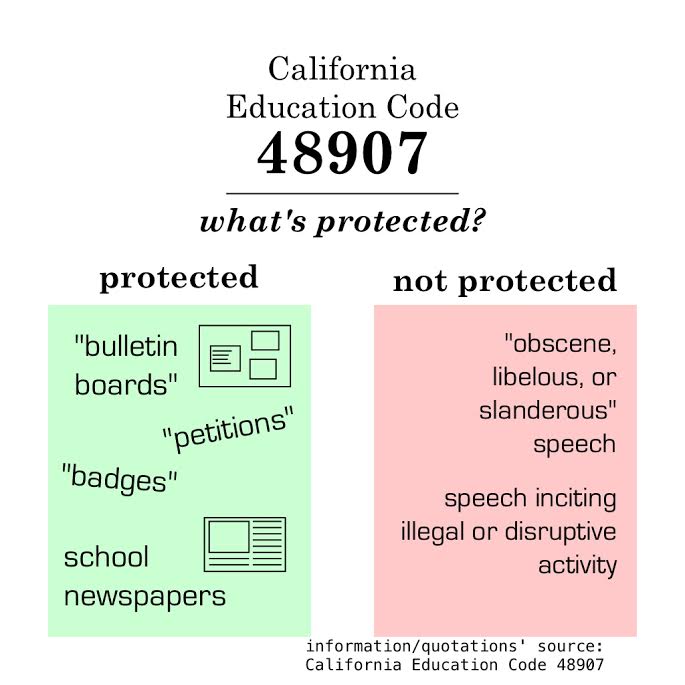
The recent events in Paris, according to Assiya, should provoke more discussion along the lines of journalistic ethics rather than free speech.
“According to the information we read, the publication the cartoon they had warnings on provocative information that they were publishing,” she said. “They should have been aware of the consequences and the implications of what they write. It was not very ethical from our point of view. But we are still very sorry for what has happened in France.”
Sana Saleem, and A-level student at Cosmic Campus tuition center in Karachi, Pakistan, thought that she perceived a double-standard within the attitudes of France and the world concerning free speech.
“Whereas I’m glad France showed that they won’t stand for this type of terrorism, I feel it’s more reflective of France becoming more Islamophobic in the years to come, as the distinction between Islam the religion and the actions of extremists isn’t being made,” Sana wrote in an email interview. “The fact that Charlie Hebdo is allowed to post content which is offensive to Muslims and is not penalised due to free speech, raises questions about why the French government seems so blasé in this respect but seems horrified at anything anti-Semitic. Now the idea isn’t to encourage anti-Semitism, but if one can have regard for the beliefs of Jews then that can surely extend to Muslims.”
See the full Tinker Tour article at https://harkeraquila.com/16925/news/tinkertour/.
This article was originally published in the pages of The Winged Post on January 28, 2015.
Elisabeth Siegel (12) is the editor-in-chief of the Winged Post. This is her fourth year in Journalism, and she especially loves production nights and...
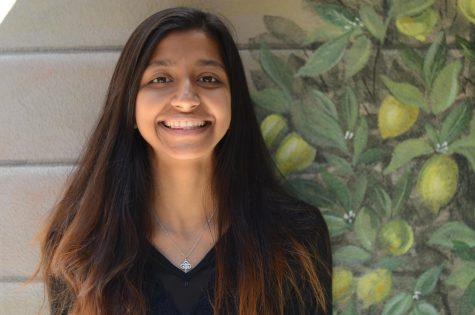
Trisha Dwivedi (12) is the Managing Editor of Harker Aquila. She was a reporter her freshman year, Business Manager of the Winged Post her sophomore year...
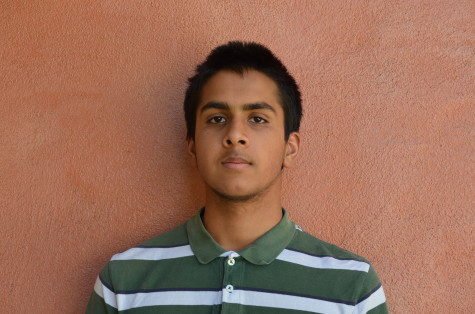
Praveen Batra (9) is a reporter for the Winged Post. He enjoys informative writing, design, and typography. In his spare time, he likes to write mobile...
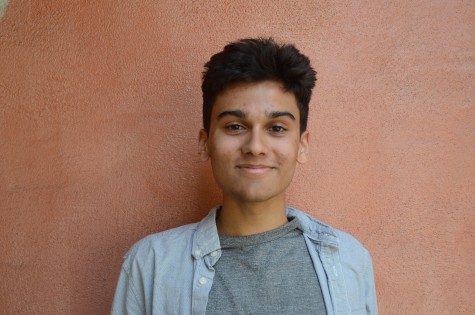
Shay Lari-Hosain (12) is the Editor-in-Chief and co-founder of Wingspan Magazine. Shay has interviewed 2013 Nobel Laureates, authors like Khaled Hosseini...




![LALC Vice President of External Affairs Raeanne Li (11) explains the International Phonetic Alphabet to attendees. "We decided to have more fun topics this year instead of just talking about the same things every year so our older members can also [enjoy],” Raeanne said.](https://harkeraquila.com/wp-content/uploads/2025/10/DSC_4627-1200x795.jpg)


















![“[Building nerf blasters] became this outlet of creativity for me that hasn't been matched by anything else. The process [of] making a build complete to your desire is such a painstakingly difficult process, but I've had to learn from [the skills needed from] soldering to proper painting. There's so many different options for everything, if you think about it, it exists. The best part is [that] if it doesn't exist, you can build it yourself," Ishaan Parate said.](https://harkeraquila.com/wp-content/uploads/2022/08/DSC_8149-900x604.jpg)




![“When I came into high school, I was ready to be a follower. But DECA was a game changer for me. It helped me overcome my fear of public speaking, and it's played such a major role in who I've become today. To be able to successfully lead a chapter of 150 students, an officer team and be one of the upperclassmen I once really admired is something I'm [really] proud of,” Anvitha Tummala ('21) said.](https://harkeraquila.com/wp-content/uploads/2021/07/Screen-Shot-2021-07-25-at-9.50.05-AM-900x594.png)







![“I think getting up in the morning and having a sense of purpose [is exciting]. I think without a certain amount of drive, life is kind of obsolete and mundane, and I think having that every single day is what makes each day unique and kind of makes life exciting,” Neymika Jain (12) said.](https://harkeraquila.com/wp-content/uploads/2017/06/Screen-Shot-2017-06-03-at-4.54.16-PM.png)








![“My slogan is ‘slow feet, don’t eat, and I’m hungry.’ You need to run fast to get where you are–you aren't going to get those championships if you aren't fast,” Angel Cervantes (12) said. “I want to do well in school on my tests and in track and win championships for my team. I live by that, [and] I can do that anywhere: in the classroom or on the field.”](https://harkeraquila.com/wp-content/uploads/2018/06/DSC5146-900x601.jpg)
![“[Volleyball has] taught me how to fall correctly, and another thing it taught is that you don’t have to be the best at something to be good at it. If you just hit the ball in a smart way, then it still scores points and you’re good at it. You could be a background player and still make a much bigger impact on the team than you would think,” Anya Gert (’20) said.](https://harkeraquila.com/wp-content/uploads/2020/06/AnnaGert_JinTuan_HoHPhotoEdited-600x900.jpeg)

![“I'm not nearly there yet, but [my confidence has] definitely been getting better since I was pretty shy and timid coming into Harker my freshman year. I know that there's a lot of people that are really confident in what they do, and I really admire them. Everyone's so driven and that has really pushed me to kind of try to find my own place in high school and be more confident,” Alyssa Huang (’20) said.](https://harkeraquila.com/wp-content/uploads/2020/06/AlyssaHuang_EmilyChen_HoHPhoto-900x749.jpeg)



